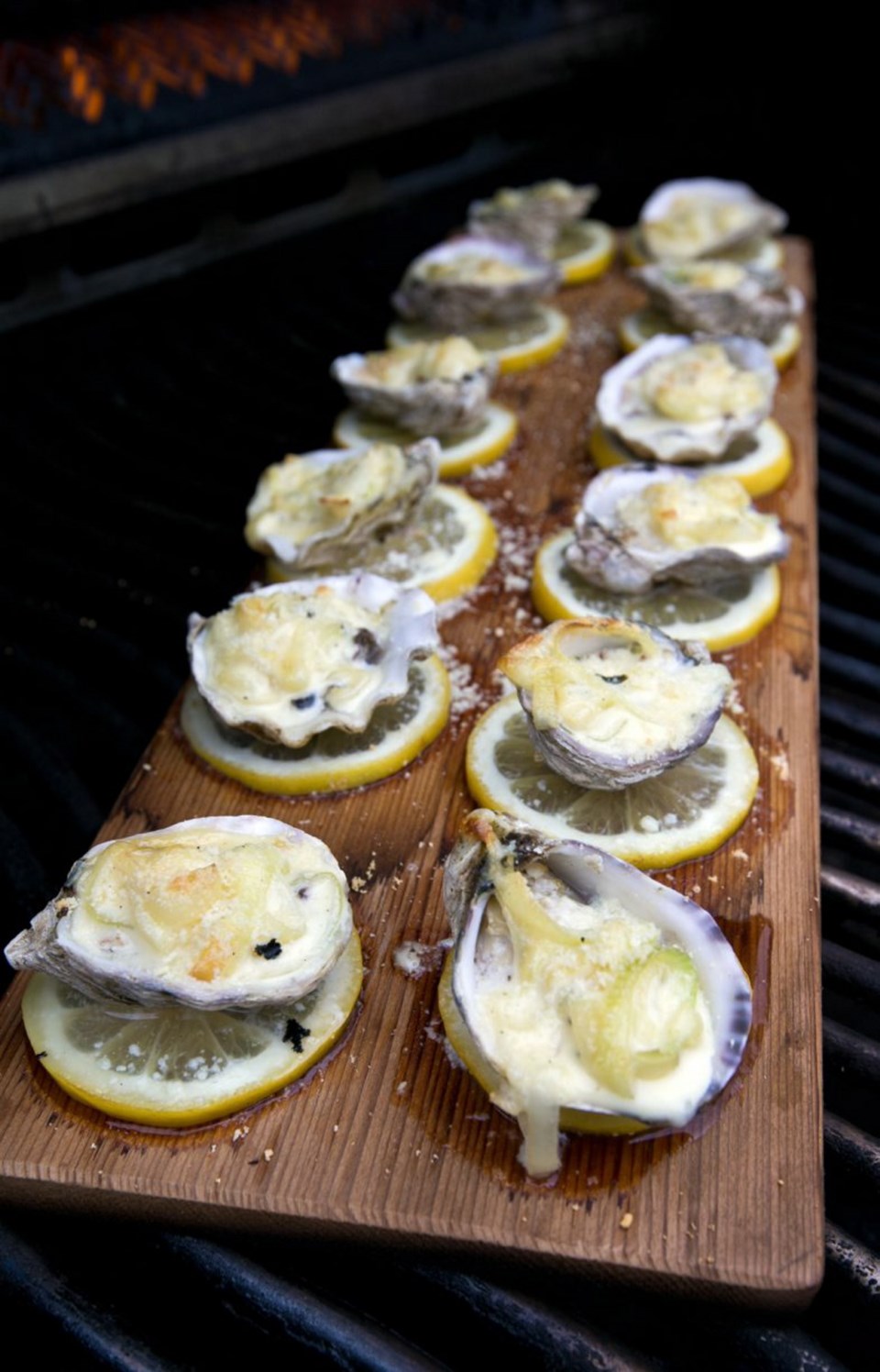The Island-based B.C. shellfish industry briefly celebrated the lifting of a raw oyster ban in Vancouver restaurants on Thursday. But the industry then settled into damage control as it tallied the cost of the month-long ban and potential damage to its reputation.
The B.C. Shellfish Growers Association said the ban, prompted by a bacteria caused by hot weather and warm water temperatures, cost oyster growers about $50,000 a day, or more than $1.5 million. Despite the ban being restricted to Greater Vancouver, word travelled abroad and likely hurt global sales.
“This is a huge loss to our industry and we hope we can recover,” Roberta Stevenson, executive director of the Comox-based B.C. Shellfish Growers Association, said Thursday. “It’s an industry made up of small family farms. They couldn’t sell anything for a month. No income. People were laid off. How do you make up for something like that? You don’t. You lose it.”
Stevenson said the hope is that consumers will come back to B.C. oysters. “I just hope [consumers] don’t stick to a P.E.I. or a New Zealand product,” she said. “We’re a small industry and any lack of confidence in our product is damaging.
“I hope people go out tonight and tomorrow and the next day and eat some B.C. oysters.”
Stevenson said almost the entire B.C. oyster industry is centred on Vancouver Island, with about 50 per cent of production in the Deep Bay area. The growers’ association has 130 members.
Mike Murphy, who owns 10 Acres Bistro and the trio of restaurants — Commons, Raw Bar and Kitchen — under the Pescatore’s banner in downtown Victoria, said the ban “probably had more effect on oyster farmers on the Island than us. And that’s unfortunate as we have some of the best oysters in the world, but all of a sudden the farmers got hit.”
As for his restaurants, which feature local fish products, they kept oysters on the menu by bringing them in from the East Coast. “They were obviously more expensive, but we had them the whole time,” he said.
Murphy said he will have a large order of Island oysters ready for this weekend.
He is also considering an oyster festival in October.
“That’s because for the farmers it’s been bad press, they’ve taken the real shot,” he said.
Since Aug. 12, restaurants overseen by the Vancouver Coastal Health Authority were required to cook all oysters harvested in B.C. before serving due to an outbreak of vibrio parahaemolyticus infection.
The health authority said Thursday that the order has been lifted because water temperature measurements and historical disease trends all indicate that risk of infection has returned to normal.
The Canadian Food Inspection Agency has also stepped up testing of raw oysters which should reduce the risk of infection.
Coastal Health said it will continue to monitor the number of illnesses in the population from eating raw oysters.
In B.C., 60 cases of vibrio parahaemolyticus related to raw shellfish consumption have been reported this year. Twenty-eight of those cases were from the Vancouver Coastal region.
On Aug. 19, the Canadian Food Inspection Agency announced a recall of B.C. oysters harvested for eating raw because of possible contamination by the bacterium. The bacterium can result in a gastro-intestinal infection with symptoms that include crampy diarrhea and possible fever. Symptoms normally clear up within four to 96 hours. Cooking destroys the bacteria, making the oysters safe to eat.
The B.C. shellfish industry agreed to the recall.
Stevenson said the raw oyster market is a major part of the industry, which has annual sales of about $32 million.
The Vancouver Island Health Authority visited restaurants and told them it was necessary to post a warning poster about eating raw oysters and to advise customers of possible dangers. Unlike the Vancouver Coastal Health Authority, it did not insist on a ban.
Stevenson said the industry is meeting Coastal Health officials today to discuss the ban.
— With files from Andrew A. Duffy
and the Vancouver Sunn



